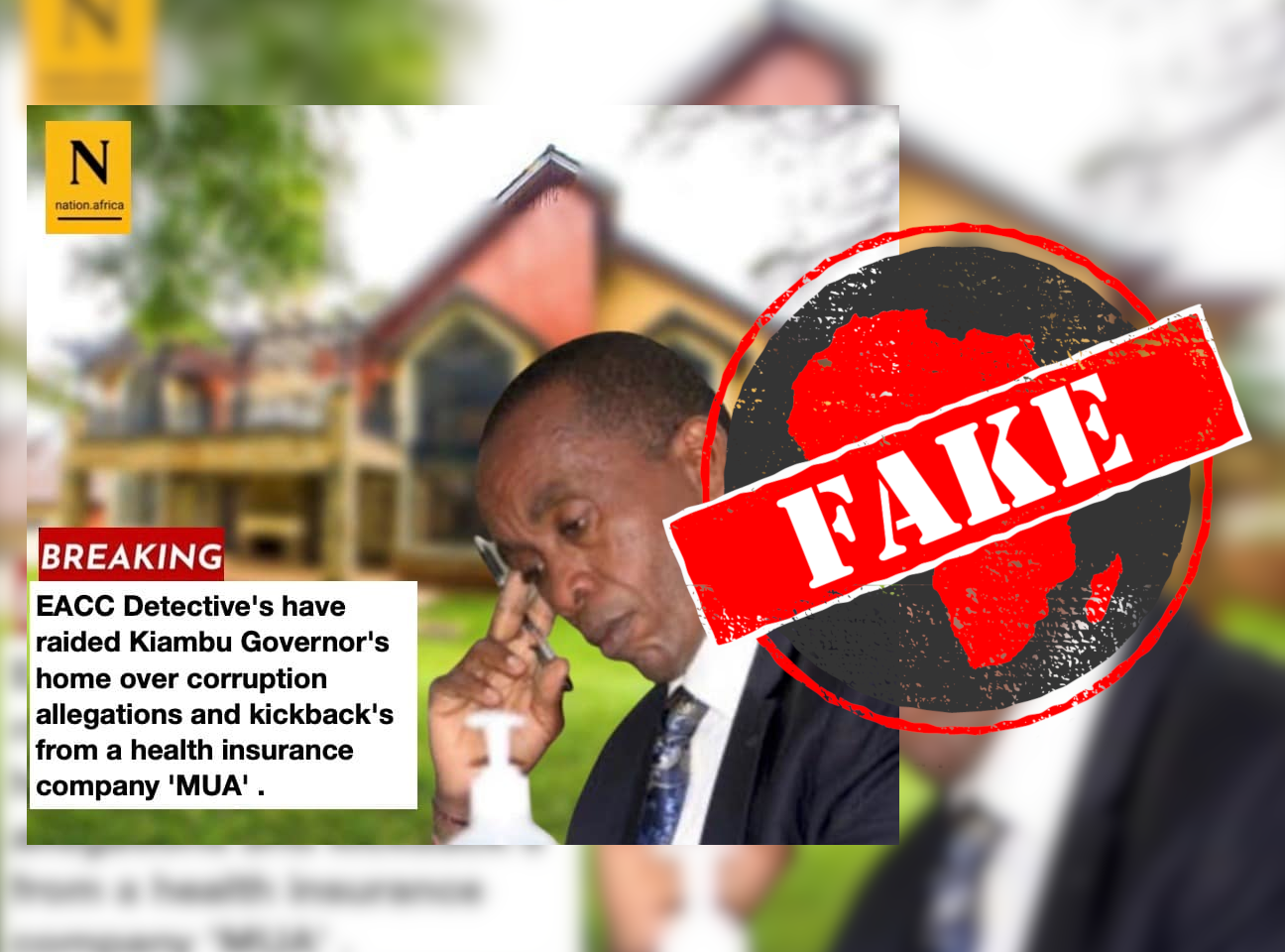IN SHORT: A graphic with the logo of respected Kenyan news site Nation claims the country’s anti-corruption agency has raided the home of Kimani Wamatangi, the governor of Kiambu county. But the graphic is fake.
A graphic posted on Facebook on 12 February 2023 claims that the home of prominent Kenyan politician Kimani Wamatangi, the governor of the populous central county of Kiambu, has been raided by the Ethics and Anti-Corruption Commission.
It shows a photo of Wamatangi. The logo of Nation, a major Kenyan news site, is at top left.
The graphic’s text reads: “EACC Detective’s have raided Kiambu Governor’s home over corruption allegations and kickback’s from a health insurance company ‘MUA’.”
The EACC is a state agency tasked with fighting corruption, economic crime and unethical conduct.
Since 1912, MUA Kenya, formerly Phoenix of East Africa Assurance Company Ltd, has provided short-term insurance to the Kenyan market. It also has operations in Tanzania, Uganda and Rwanda.
But did Nation really report that Wamatangi’s home had been raided by the EACC?

Fake graphic
The grammatical errors on the graphic – “Detective’s” and “kickback’s” – are red flags, unlikely in a graphic from a reputable publication.
No other credible news source has reported the alleged raid.
On 11 February 2023, Nation posted the graphic on its verified Facebook page, stamped “FAKE”.
It added: “FAKE NEWS ALERT! Please be advised that this card doing rounds on social media is fake #FakeNews Alert."
Republish our content for free
For publishers: what to do if your post is rated false
A fact-checker has rated your Facebook or Instagram post as “false”, “altered”, “partly false” or “missing context”. This could have serious consequences. What do you do?
Click on our guide for the steps you should follow.
Publishers guideAfrica Check teams up with Facebook
Africa Check is a partner in Meta's third-party fact-checking programme to help stop the spread of false information on social media.
The content we rate as “false” will be downgraded on Facebook and Instagram. This means fewer people will see it.
You can also help identify false information on Facebook. This guide explains how.


Add new comment